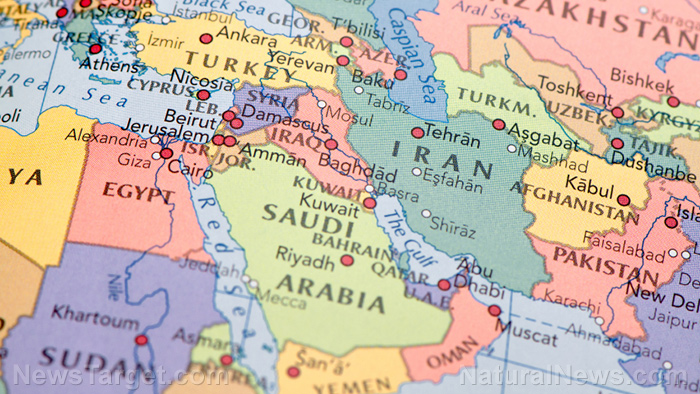
(Article by Andreas Krieg republished from MiddleEastEye.net)
From Marco Rubio as secretary of state, to Fox News anchor Pete Hegseth as defence secretary, to Mike Huckabee as ambassador to Israel, and Steve Witkoff as Middle East envoy, the nominations are telling. Each has previously wedded himself not just to Israel, but also to the extremist narratives of religious Zionism represented in the country’s current government.
But while Rubio and Huckabee in particular have been pushing these narratives on the campaign trail for political reasons, all of them will now face a reality check when it comes to formulating and delivering a coherent Middle East policy.
For one, their unequivocal support for Israel’s unhinged government policy of military annihilation of the idea of resistance, will cause friction with Trump’s overarching objective to end all wars in the region.
Netanyahu has proven time and again over the past 13 months that he favours protracted military operations without clear strategic objectives, over taking diplomatic off-ramps to end hostilities - especially in the war on Gaza, where military objectives have been exhausted, billions of US taxpayer dollars has been wasted to keep Netanyahu in power, hostages have not come home, and tens of thousands of Palestinian civilians have been killed.
In Lebanon, Israel will not be able to achieve more than degrading Hezbollah, which continues to fire rockets towards Israel. But the war against Hezbollah appears to have spiralled out of control, as Israel has redirected its war aims against the entirety of Iran’s “axis of resistance” and the wider population.
And while the Trump administration will return to a “maximum pressure” campaign against Iran, the new White House will desperately try to avoid a direct military confrontation with Iran, instead delegating that burden to regional partners.
Gulf lobbies
The second and equally important point of friction is the reliance of Trump’s regional policy on the Gulf states. While the pro-Israel lobby will try to sell narratives to the Trump ideologues, the various Gulf lobbies have deep pockets that have already entangled business networks around Trump.
Saudi Arabia, the United Arab Emirates and Qatar have all built extensive relationships with the Trump ecosystem - all underwritten by lucrative investments. More so, Trump knows he will not need the pro-Israel lobby to get re-elected, as this will be his last term.
The Gulf lobbies, however, can provide lucrative avenues to retirement not just for Trump and his family, but also for many of those appointed by him into positions of power. And the interests of the Gulf states will not be easily reconcilable with the interests of Netanyahu’s Israel.
On Gaza, there is strong opposition to what Saudi Crown Prince Mohammed bin Salman last week referred to as “collective genocide” committed by Israel.
The annexation of territory in Gaza and the West Bank will not be acceptable to Washington’s Gulf partners, and likely presents a red line that Trump and his ideologues won’t dare to cross.
Yet, in the absence of a clear US strategy out of Israel’s multi-front war, it remains to be seen whether the Gulf can offer anything tangible that prevents Israel from creating irreversible faits accomplis on the ground.
This, in turn, risks upending the little progress that has been achieved by the US in pushing Gulf states into normalising with Israel. Saudi Arabia has made clear its red lines: it will not join the Abraham Accords and normalise with Israel until demands for Palestinian statehood are met.
Trump’s Middle East team of ideologues will find that emboldening the far right in Israel will make it increasingly unpalatable for the kingdom to normalise ties.
Warmongering narrative
On Iran, the Gulf states find themselves in a different position than they did in 2017, when Trump first entered the White House. The absence of credible US leadership in the meantime has seen Gulf states effectively diversify their global networks and partnerships. They are today far less reliant on Washington than they were years ago.
What’s more, the Gulf states are also now far more conscious of their leverage vis-a-vis the US, as engagement and reconciliation has been the name of the game in the Gulf in recent years. There is consensus in the Gulf that bringing Iran into the fold is far better for business than cornering it into subversive surrogate operations.
The efforts of reconciliation, especially between Riyadh and Tehran over the past two years, appear to be irreversible. Thus, in terms of delivering “maximum pressure”, the Trump administration will not be able to rely much on the support of Gulf capitals this time around.
Israel’s warmongering narrative of regime change, meanwhile, can only be put into effect if the US is willing to pour significant blood and treasure into the conflict - something that would fundamentally contradict one of Trump’s few principles of no more American wars in the Middle East.
Thus, while the Trump team has been deeply ideological in how it talks about Israel for domestic consumption, designing and delivering policy in the Middle East requires far more balance than delivering Zionist talking points in a Fox News commentary.
The reality check will come fast - especially if Trump is really interested in a grand bargain to secure his legacy both financially and politically. The deal of the century can be had, but only if Trump can use Washington’s leverage to keep Netanyahu and company in check.
Should Trump and his team be played like President Joe Biden got played by Netanyahu, US regional leadership will continue to decline.
This article was first published on Arab Digest website.
The views expressed in this article belong to the author and do not necessarily reflect the editorial policy of Middle East Eye.
Read more at: MiddleEastEye.net
Source link

